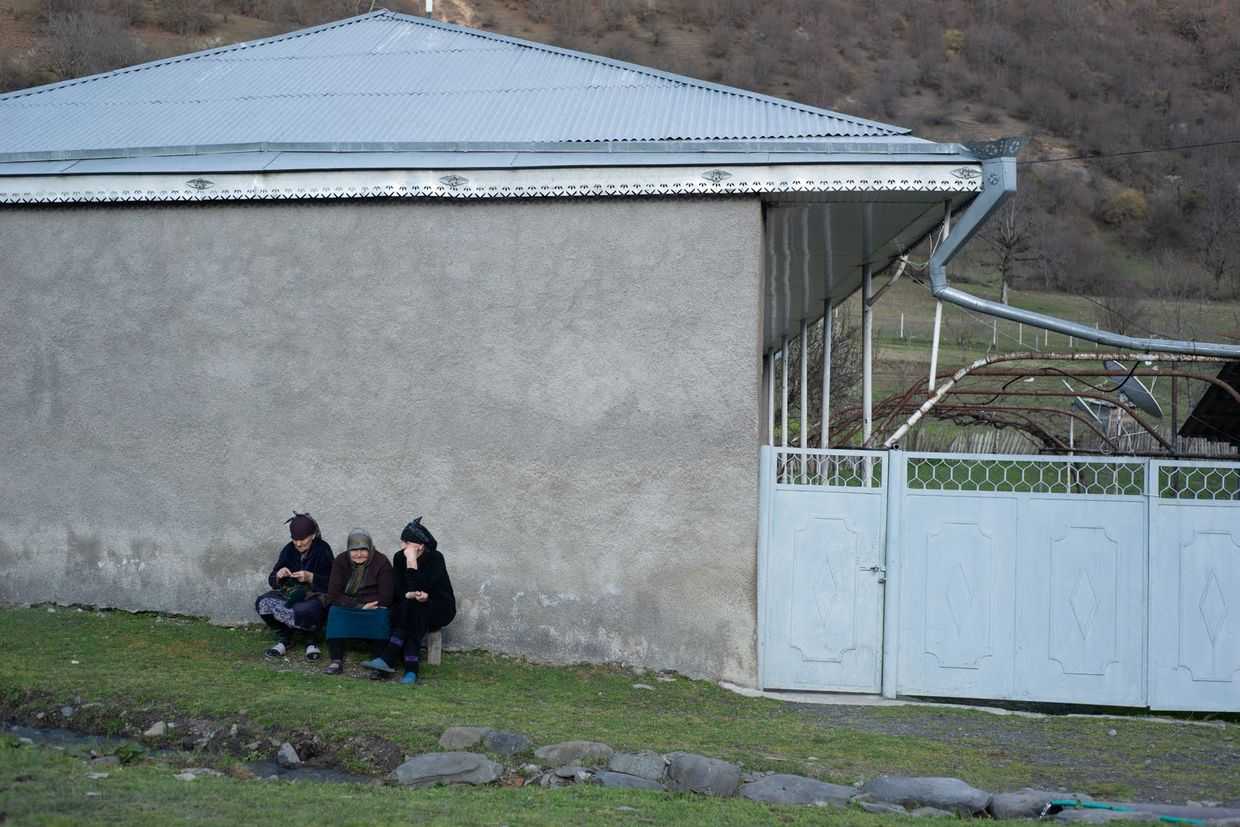Inside the Pankisi brewery making traditional Chechen fruit-based non-alcoholic beer
Kisturi Draft reimagines a time-honoured tradition in Georgia’s Pankisi Valley — non-alcoholic rosehip and hawthorn berry ‘beer’.

If you ever hiked in the Caucasus, you’ve probably seen the thorny wild rosehip with its vivid crimson fruit, and the lush bushes of black hawthorn — now, you can also drink their flavour, bottled into the soft fizz that is rooted in generations of Kist tradition.
Tucked into the northeastern mountains of Georgia, the Pankisi Valley, populated by this sub-ethnic Chechen group, is the home to Kisturi Craft — deep-amber coloured, non-alcoholic ‘beer’ produced by a local entrepreneur, Shengeli Tokhosashvili, in the small village of Omalo.


The Kist tradition of non-alcoholic beer dates back decades, if not centuries — as a Muslim majority, Kists abstain from alcohol. Kist families have boiled ‘yii’, the Chechen term for a non-alcoholic beverage that can roughly be translated as beer, in front of their houses on holidays — in Tokhosashvili’s memory, mostly on New Year’s. At his brewery, though, the grandmother-owned bronze pot is replaced with a slick steel reservoir, and the open fire with a modern gas stove. The name changed too — the beverage that Tokhosashvili referred to in Chechen is now sold as Kisturi Draft, after some questions over the ‘beer’ part from non-Pankisi residents.
‘I still call it a beer in my head, though. It’s an alcohol-free beer’, Tokhosashvili says.

The process is very similar to beer brewing, but the difference lies in two key ingredients needed for alcohol: sugar and yeast. Tokhosashvili uses a weaker yeast, and adds only minimal hops — most of Kisturi’s taste comes from wild rosehip and black hawthorn berries, low-sugar containing fruit. While the yeast needs a bit of sugar to activate, Kisturi ends up with around 5 grams of sugar per 100 ml and only 0.3% alcohol, much sweeter and gentler than your average beer.
The first batches of Kisturi captured the flavor of the Pankisi hills, using berries foraged nearby. But as production expanded, the family began sourcing fruit from neighbouring regions. Last year alone, Tokhosashvili says, they purchased over three tons of rosehip and a ton of hawthorn berries.


Tokhosashvili takes pride in balancing the flavours and closely follows the entire process — one small mistake, for example if the temperature is slightly off, and you might end up losing hundreds of litres, which, he says, ‘has happened many times’.
His brewery is a series of three adjoining spaces that stand right in the Tokhosashvili family garden — roses on one side, orchard on the other. It all starts in the back where Tokhosashvili boils the fruit for three hours, before adding sugar and boiling for another 30 minutes. Slow boiling allows the rosehip, which has shrunk during storage, to release the juice that will create Kisturi’s fruity and fragrant notes.


The liquid then goes to the cool fermentation room, where the actual brewing happens, and later travels through filters and forms bubbles before finally reaching the storefront, where, usually, Tokhosashvili’s father, Ramaz, bottles it up.
The true inspiration behind the process, however, was Tokhosashvili’s 64-year-old mother Marina Pareulidze, whose home-made brews have inspired Kisturi Craft. The large family pot that she shielded from rainwater and ashes was what Shengeli, back then a civil education teacher, had in mind in 2018, when he pitched the idea at a USAID grant-writing workshop. Surprisingly, it received €1,000 ($1,200) in funding, which caught him off guard.

‘I had no idea how to make it’, he says. ‘The first batch we boiled on the fire in front of our house, and sold in recycled plastic Coca-Cola bottles’.
But it was enough to see the potential of the idea and keep applying for further funding, mostly from USAID and the EU.
Tokhosashvili also began traveling to other Georgian breweries and spent years perfecting his process: ‘I’ve been told that I’ll fail many times but come out victorious in the end’.
Now, in summer, he says that Kisturi Craft sells about 4,000 litres per month — something he hadn’t even dreamed of when he started. When the season is low, the family leans into the mushroom production that Tokhosashvili set up in their shed.


So far, the company manages to run the brewery on profit — the beverage is sold in 15 of Tbilisi’s restaurants, as well as a few in Batumi, but its biggest market is still Pankisi Valley itself. Tokhosashvili is trying to raise awareness by participating in various food festivals, while also making plans to launch Kisturi lemonade and experimenting with flavours like dried apple and prune. However, he still withholds from expanding the brewery — with the USAID freeze and the political instability that has taken over in Georgia since the 2024 parliamentary elections, Tokhosashvili does not feel comfortable taking out any additional loans.
‘It is hard for me to find the motivation at the moment. The USAID [funding] was beneficial not only for me, but for the whole Pankisi Valley — a lot of educational and entrepreneurial projects are on hold now’, he says.

According to Tokhosashvili, Omalo, like many Georgian villages, sees a lot of younger families immigrating abroad in the absence of local job prospects. Tokhosashvili, who is the only one of three siblings who stayed in Pankisi Valley, has entertained the thought too — but, for the time being, he stays committed to his craft.
‘I always wanted to live and work here, which is why I returned after graduating in Tbilisi, and I was happy to find my calling’.








